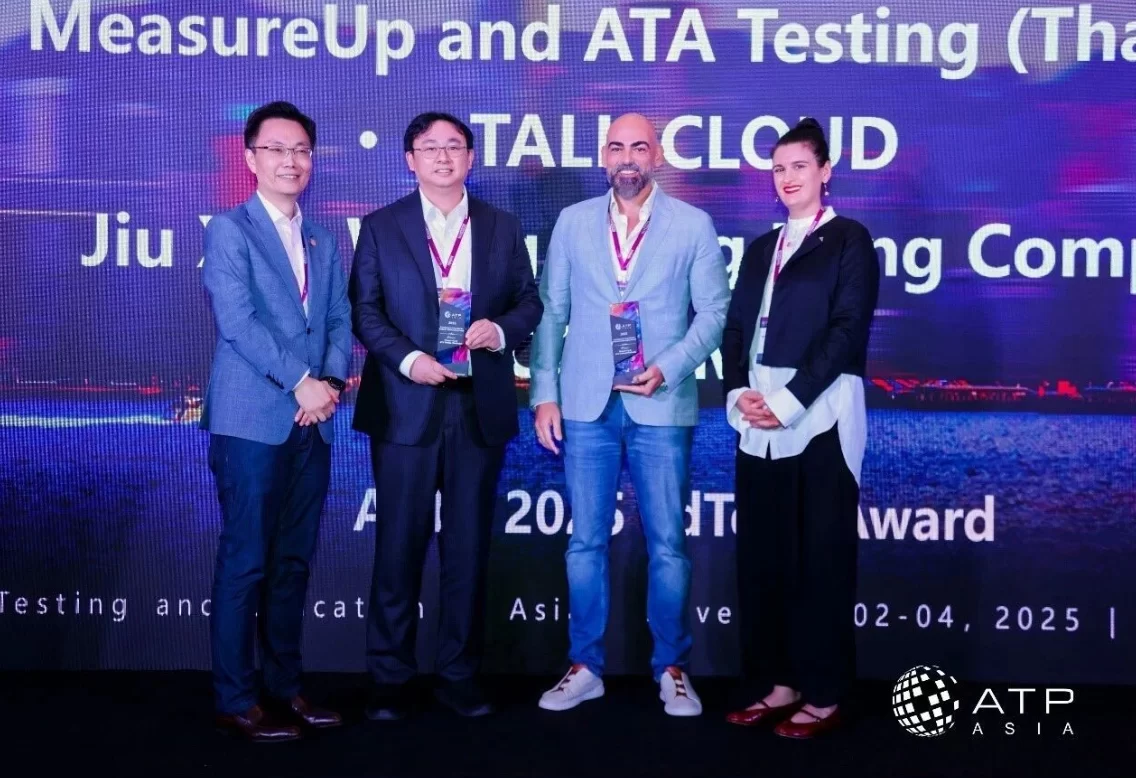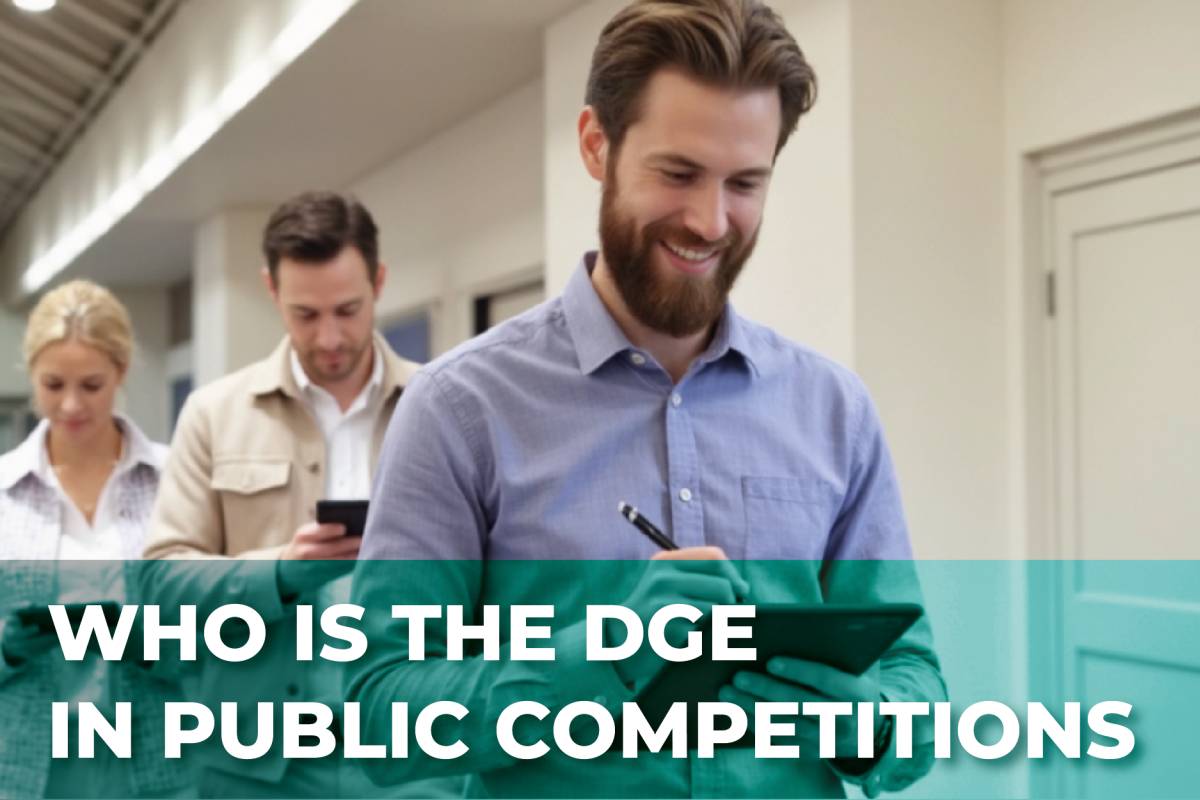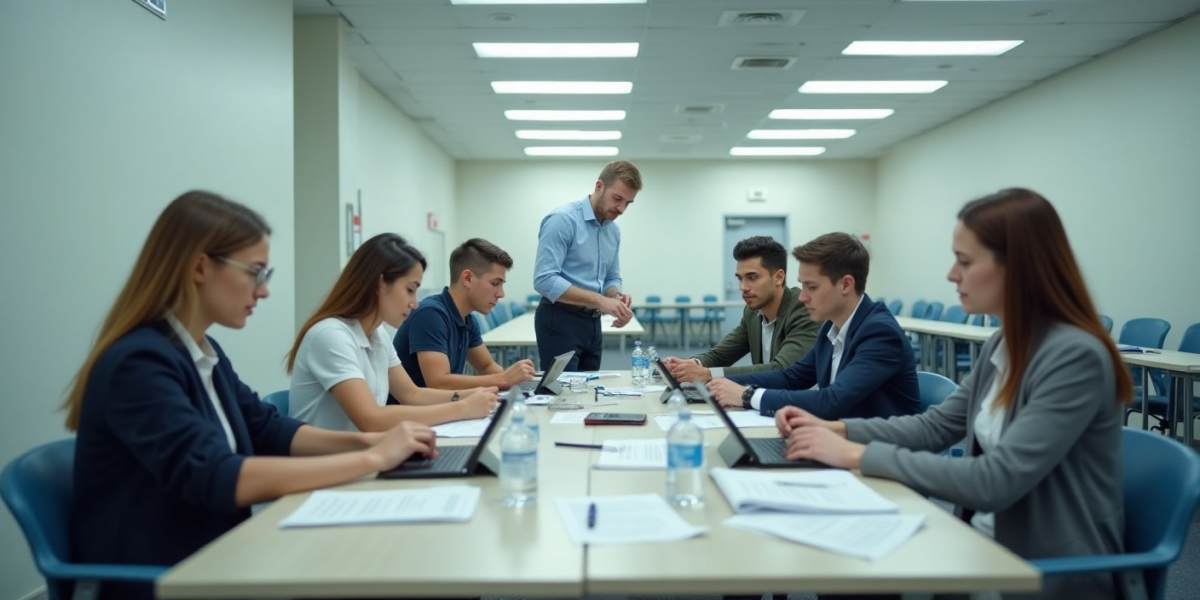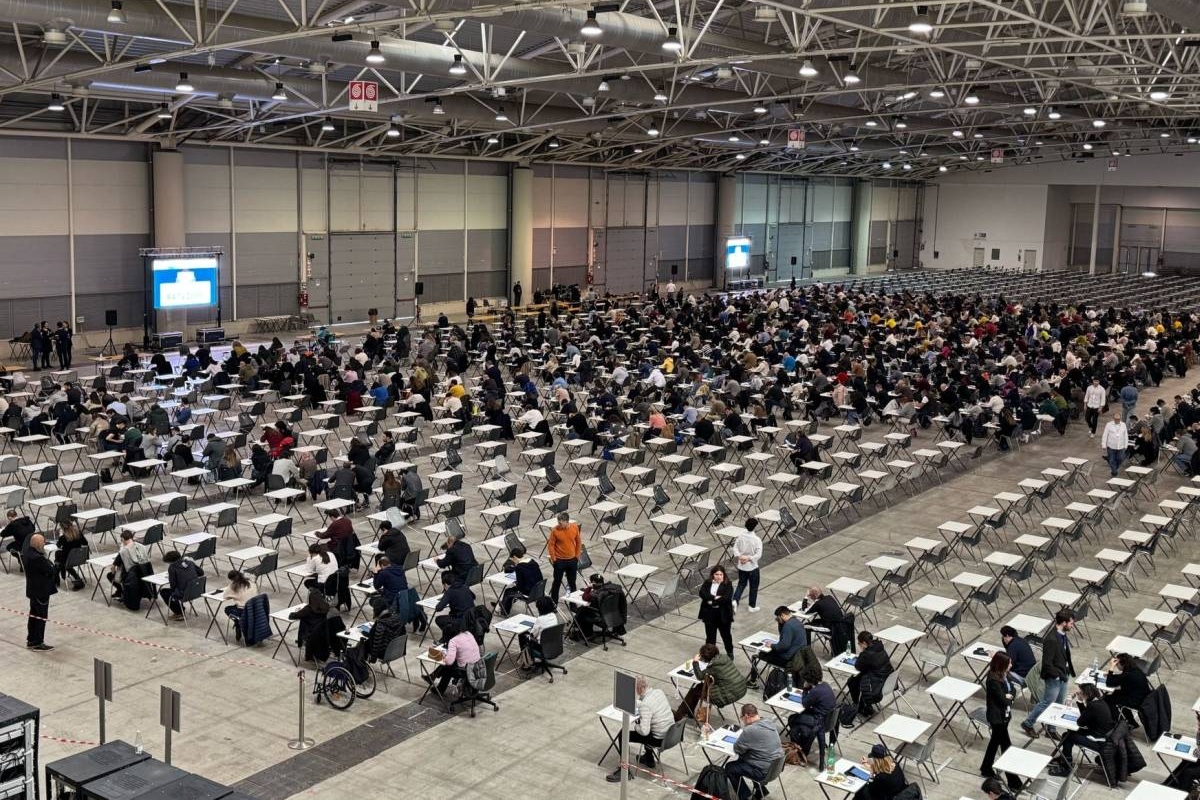In a context where the organization of public competitions is of strategic importance, the Contest Manager plays a crucial role in ensuring that they are run regularly and effectively. In this exclusive interview, we will explore the responsibilities and dynamics of this professional role with Lara, contest manager at Recrytera. Lara will offer us a privileged insight into the competition process, from conception to conclusion.
1. We recognize the crucial role of the contest manager in organizing and managing public competitions. Could you please describe your main responsibilities in detail and explain how they fit into the broader competition process, from conception to conclusion?
The contest manager is the professional responsible for designing, planning, coordinating and supervising all stages of a public competition in accordance with current legislation (e.g. Legislative Decree 165/2001, the Public Contracts Code and the Digital Administration Code) and the administration’s objectives. Their role involves more than simply ‘executing’ the procedure; they collaborate closely with managers, legal departments, committees and suppliers, acting as the internal and external point of reference for the entire competition process.
To integrate customer requirements with the needs and correct procedures for carrying out the entire selection process, it is important to work closely with the Administration and support it in the correct interpretation of constantly evolving regulations. The Contest Manager’s main responsibilities can be summarized as follows:
1) Conducting needs analysis and designing the call for applications.
– Collaborating with HR departments and management to define recruitment profiles based on staffing levels and requirements plans. They draft or coordinate the drafting of the competition announcement, taking care of entry requirements, selection methods (tests, qualifications and scores), evaluation criteria, legal requirements and administrative transparency. They ensure that the announcement is published correctly on official portals (INPA, the Official Gazette, the institution’s website, etc.).
2) Providing support and secretarial services for the Examination Board: Organizes meetings and provides the Board with technical and administrative support. Responsibilities include recording proceedings, ensuring the confidentiality of documents and the correct application of assessment criteria. The role also involves intervening to ensure procedural fairness and compliance with deadlines, without influencing the merits.
3) Management of transparency, documents and appeals. Oversee the publication of documents such as rankings, minutes and scores. Responsible for managing requests for access to documents and applications from candidates. They coordinate with the legal department on the management of administrative appeals or disputes. Ensures compliance with privacy (GDPR) and anti-corruption (Law 190/2012) regulations.
4) Conclusion and recruitment of staff: Supervises the approval of the final ranking. They coordinate communication with successful candidates and the start of recruitment. Provides support to offices in recruiting staff and drawing up contracts.
2. The landscape of public competitions is constantly evolving, often due to the introduction of new regulations or methodologies. What are the most significant daily challenges you face in your role, and how do you view the current direction of change in public competitions, particularly considering recent reforms?
As the person responsible for organizing and managing public competitions in Italy, I am faced with a variety of complex challenges daily. These challenges reflect the regulatory, technological and social developments within the public sector. Below, I list the main difficulties and provide an analysis of the current direction of change, considering recent reforms.
In recent years, reforms such as the PNRR and PA reform have introduced new recruitment methods involving simplified, digitized and faster procedures. To adapt quickly to these changes, it is necessary to continuously update procedures, internal regulations and operating practices. Regulations are often complex, with margins for interpretation that make uniform application across agencies difficult. Abandoning traditional written tests (e.g. essay-based and handwritten) in favor of multiple-choice quizzes and digital tests enables more competitions to be held each year. It is important to be present and provide good advice to achieve both quantitative and qualitative results.
In fact, selection processes are increasingly geared towards testing practical and aptitude skills, as well as theoretical knowledge.
My task is to integrate new methodologies with the authorities expressed needs, with a view to achieving efficiency, transparency and fairness.
3. There is much talk today of a paradigm shift in public administration, which now seeks not only technical skills, but also a range of soft skills. From your perspective, which soft skills are essential for individuals aspiring to work in public administration, and how should they be assessed during competitive examinations?
Public administration is undergoing a period of profound renewal. This involves more than just changing tools and procedures; it represents a genuine re-evaluation of the ideal profile of a public employee.
While the focus was previously almost exclusively on technical and regulatory skills, there is now a growing recognition that the quality of public service also depends on a set of soft skills that are essential for dealing with complex, dynamic and relational contexts.
The soft skills that I consider essential are:
- The ability to work in a team: modern public administration increasingly involves cross-functional and interdepartmental projects; working in silos hinders innovation and service quality.
- Effective communication (written and oral): this is essential for interacting with citizens, colleagues, and external stakeholders. It requires clarity, conciseness, and active listening skills.
- Problem solving and critical thinking: today’s bureaucracy should solve problems, not create them. We need people who can interpret regulations intelligently and flexibly, with a view to achieving goals.
- Stress management and adaptability: the regulatory and operational environment is constantly evolving. Public employees must be able to respond resiliently to peaks in the workload, reforms, and organizational changes.
- Results orientation and a sense of responsibility are also essential: an increasing number of organizations are adopting performance management approaches; it is no longer enough just to “do”, you must “achieve objectives”.
- Soft digital skills: these are not just technical skills; they also involve the ability to navigate digital environments, learn to use new tools, and make informed use of data and platforms.
- Ethics and a sense of public service: this is perhaps the most ‘forgotten’ yet essential soft skill: knowing how to reconcile compliance with rules with public interest and collective well-being.
4. Given that the PA aims to become more efficient, innovative and service-oriented, what qualities is it looking for in candidates participating in competitions? Which profiles and skills does the PA prioritize to build its future?
The future of public administration is looking for professionals, not bureaucrats. People who can work intelligently and independently, and who have a strong sense of service. People who are not afraid of change, but who can guide it. This slow paradigm shift is not without resistance, but it is now irreversible. More and more job advertisements, particularly at central government level (civil service, ministries and agencies), favor hybrid profiles, such as lawyer + digital skills, administrator + project management or technician + public communication. Candidates should be young but not inexperienced; many competitions aim to recognize educational and professional experience gained in the private or third sectors to bring new ideas to public administration.
We are looking for proactive individuals who can demonstrate regulatory knowledge, analytical skills and the ability to make proposals during the oral phase.
Public administration continues to require specialist profiles, such as lawyers, accountants, engineers, IT specialists, environmental experts and administrative technicians. However, the ability to adapt technical skills to different interdisciplinary contexts in an ever-changing regulatory and organizational landscape is becoming increasingly important.
Ideal candidates are agents of change who can propose new solutions, use digital tools, digitize processes and simplify compliance. This also applies to ‘traditional’ roles, such as administrative officer: nowadays, the ability to rethink processes, rather than just manage them, is required. It is no longer enough to ‘do your part’: the profiles sought are those that can see the bigger picture, work towards objectives, and have a spirit of service. The PA is looking for candidates who understand that efficiency is a means to an end, not an end in itself: a way to offer better, more accessible and transparent services. The PA is looking for people who are willing to learn and embrace new ideas, and who are flexible, curious and up to date. Qualifications alone are not enough; the ability to keep up to date with regulations, technologies, and methodologies is required.
5. Selection methods in public competitions are undergoing significant changes, with the introduction of more dynamic tests that focus less on mere memorization. Could you explain how competition tests are evolving and how these new methods aim to identify candidates who best meet the current needs of public administration?
Certainly, we are witnessing a real paradigm shift in the way public competitions are selected in Italy. Reforms in recent years, driven mainly by the PNRR (National Recovery and Resilience Plan), the Recruitment Decree, and the need to modernize administrative processes, are leading to a radical transformation of competition models. The aim is to make them:
- more agile in terms of time;
- more consistent with the actual skills required;
- more meritocratic and transparent.
Historically, written exams were based almost exclusively on the rote memorization of laws and regulations. Today, however, the emphasis is on understanding how to apply them, with questions increasingly focusing on case studies or real-life situations (What would you do if…?’). The focus is on logical and legal reasoning skills, rather than slavishly repeating articles.
Written tests are almost always computerized and comprise multiple-choice questions. In addition to the technical and regulatory components, tests now increasingly include logic and critical reasoning, text comprehension, digital skills and numerical skills.
The advantages are certainly the speed with which corrections are made and rankings published, as well as the objectivity and transparency of the process (it is difficult to contest an automated response).
There is also greater use of aptitude and behavioral tests (soft skills).
The following are currently being tested (and are already in use in some organizations) and are becoming more widespread: Situational Judgement Tests (SJTs), tests based on realistic scenarios designed to evaluate decision-making, ethics, and problem-solving skills.
Behavioral questions in interviews: ‘Tell me about a time when you had to work under pressure’.
Assessment centers (still rare) involve group tests, role-playing and simulated discussions to observe transferable skills.
Interviews are increasingly focused on motivation and soft skills. The oral exam is no longer just a test of knowledge; attention is also paid to motivation for the role and public mission, consistency of studies and experience, communication and interpersonal skills, digital skills, and operational flexibility. The importance of qualifications (educational and professional) is growing, especially for technical or specialist competitions.
In some cases (e.g. PNRR competitions, ICT or STEM profiles), the assessment of qualifications can replace a test or carry significant weight in the final ranking.
6. In conclusion, what advice would you give to someone who wants to pursue a career in public administration? Which aspects should they focus on most to prepare for competitive examinations and become successful public administrators?
Anyone wishing to pursue a career in public administration in Italy today is entering a very interesting, yet challenging, period: public administration is undergoing a transformation and is looking for individuals who can contribute value rather than simply follow rules. If I had to give one piece of advice, it would be three pieces of advice, all of which are related to each other and concern mindset, method and motivation.
1. Develop critical and practical thinking skills and go beyond rote learning.
Memorizing articles and regulations is no longer enough. Nowadays, it is essential to understand the principles that underpin administrative action, such as transparency, legality, effectiveness and impartiality. You also need to know how to apply regulations to practical cases, complex contexts and concrete problems, and adopt an integrated approach that combines legal, economic and digital skills.
2. Develop your transferable and digital skills.
Those entering public administration today need to be able to use platforms, databases and online collaboration tools, work in teams remotely on complex projects and communicate clearly with citizens, colleagues and external parties.
3. Clearly explain why you want to work in the public sector.
Public sector jobs are not just about job security anymore. Above all, they should offer the opportunity to serve citizens, take responsibility for the community and contribute to modernizing and improving the country.
This interview offered a comprehensive overview of the current dynamics and transformations occurring in public competitions and administration. We discussed the importance of taking a dynamic approach to selection and identified the need to select individuals who can contribute to innovation and efficiency in public administration.
Lara’s final recommendations offer valuable advice for individuals aspiring to a career in public administration, stressing the importance of targeted preparation and a comprehensive grasp of the evolving demands of the field.





